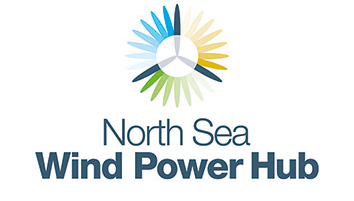Maximising long-term socio-economic welfare while ensuring security of supply
NSWPH contracts Energynautics for extensive Energy System Study
 The North Sea Wind Power Hub (NSWPH) consortium commissioned Danish Ea Energy Analyses and Energynautics to perform a study on the effective integration of large-scale offshore wind in the future energy system (outlook 2030 until 2050). The outcome should support decision-making for the first hub project to be realised in the early 2030s. First results are to be expected in July 2021.
The North Sea Wind Power Hub (NSWPH) consortium commissioned Danish Ea Energy Analyses and Energynautics to perform a study on the effective integration of large-scale offshore wind in the future energy system (outlook 2030 until 2050). The outcome should support decision-making for the first hub project to be realised in the early 2030s. First results are to be expected in July 2021.
International partners
The two companies joined forces as Energynautics is specialised in the technical aspects of renewables grid integration and Ea Energy Analyses has its core focus on the optimal capacity expansion and dispatch of future energy systems. Both companies are supported by Dutch research organisation, TNO, for aspects related to hydrogen and system integration and Danish University, DTU Wind, for aspects related to offshore wind energy generation.
Goal
The goal of the study is to gain insights in how to effectively integrate large-scale offshore wind in the future energy system in such a way that it maximises long-term socio-economic welfare, while ensuring security of supply, by:
- deepening the understanding of the offshore wind integration challenges on both a national level and transnational level;
- understanding the drivers of effectively integrating large scale offshore wind into the energy system, taking into account the country or regional specific energy system context;
- determining the design principles for possible offshore wind integration routes, in the context of the roll-out pathway of the first and yet to be planned energy hub projects.
Luuk Feenstra, manager Energy Systems North Sea Wind Power Hub: “With the decreasing cost levels of offshore wind and the intended roll out plans of the countries connected to the North Sea, it becomes extremely important to design an offshore energy system, including the integration challenges to the onshore energy system, which will effectively be designed for the coming decades. This requires a multi-country and cross-sector approach. We are pleased to announce that we have the opportunity to work together with the specific knowledge centres from the Netherlands, Germany and Denmark”.

